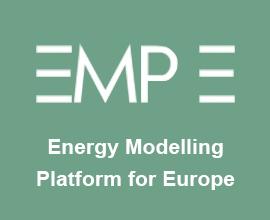-
Energy Modelling Platform for Europe 2019 (EMP-E 2019)
October 8th – 9th, 2019
Brussels
Modelling (the implementation of) A Clean Planet for All strategy
Subject
The Energy Modelling Platform for Europe (EMP-E) is an annual conference, bringing together scientists and policy makers on current and innovative energy modelling issues. Due to the active involvement of EC representatives and leading researchers, the aim is to bridge the gap between modelling and policy making at European, regional and local level. Stakeholders are provided with a peer-reviewed digest of model and policy insights for the transformation of the European energy system.
The platform constitutes a continuous forum for exchanging research, development and practice of energy system modelling in Europe and, where feasible, promotes the sharing of data and resources. It thus aims to increase the efficiency, integrity and access to European energy modelling data, scenarios, tools and results.
For further information:
Download Flyer or click on http://www.energymodellingplatform.eu/home-emp-e-2019.html -
Final REFLEX Stakeholder Workshop
April 3rd, 2019
Saxony Liaison Office Brussels (Av. d’Audergehm 67)
Flexibility and Technological Progress in a Multi-Coupled European Energy System
Subject
The decarbonisation of the energy system is one of the main challenges the European Union is facing in the coming years and decades. Renewable energies play a crucial role in this transformation process. However, due to their intermittent nature they rise the need for flexibility. A large bundle of technologies may provide the needed flexibility, such as energy storage systems or demand side management.
The role of different flexibility options for the decarbonisation of the European energy system will be discussed during this afternoon event. The focus lies on the demand side developments and demand side flexibility as well as on the trade-off between different technologies in the electricity, mobility and heat sector. Furthermore, technological learning, societal and environmental impacts as well as cross-sectoral interactions are taken into account in the analyses. In addition, the workshop addresses questions about market design options and policy measures, to facilitate the exploitation of flexibility options in different energy sectors.
These topics were addressed in keynote presentations by the following energy experts:
· Dr. Andreas Zucker, Policy Officer at DG ENER, European Commission
· Dr. Kátrin Schweren, Head of Regulatory and Public Affairs at tiko Energy Solutions AG
· Prof. Dr. Thierry Coosemans, Director EVERGi at MOBI – Mobility, Logistics and Automotive Technology Research Centre, Vrije Universiteit Brussel
The keynote presentations were complemented by final results and insights from the Reflex project. We thank all participants for their great interest and the open and scientific exchange.
For further information download:
Workshop Flyer and Workshop Agenda
Presentations:
Scope_of_Reflex_D.Moest
EU_Strategy_for_long-term_emissions_reduction_LTS_A.Zucker
Technological_Learning_A.Louwen
Decarbonization_of_the_Transport_Sector_S.Heitel
Demand_Side_Developments_A.Herbst_U.Reiter
Optimal_Combinations_of_Flexibility_Options_S.Schreiber
Market_Designs_C.Fraunholz
Environmental_Social_LCA_M.Fuss
Need_for_V2G_Th.Coosemans
Wrap_Up_D.Möst -
Energy Modelling Platform for Europe 2018 (EMP-E 2018)
September 25 – 26th, 2018
Brussels
EMP-E 2018 – Modelling clean energy pathways
We, the cluster LCE-21-2015, consisting of four Horizon 2020 projects[1][1] working on “Modelling and analysing the energy system, its transformation and impacts”, are pleased to announce the Second Meeting of an Energy Modelling Platform for Europe (EMP-E) 2018, hosted on September 25th and 26th by the European Commission DG Research & Innovation in Brussels.
The Energy Modelling Platform for Europe (EMP-E) culminates in a yearly conference, bringing together scientists and policy makers to discuss cutting edge energy modelling issues. Stakeholders are provided with a peer-reviewed digest of model and policy insights for European energy scenario. The platform serves as a continuous forum for exchanging research, development and practice of energy system modelling in Europe and, where feasible, promote the sharing of data and resources. It thus shall increase the efficiency, integrity and access to European energy modelling data, scenarios, tools and results.
The agenda of this year’s meeting of the Energy Modelling Platform includes three plenary sessions with key themes to be highlighted being ‘modelling of behavioural aspects’, ‘integrated modelling of energy and resource efficiency’ as well as ‘innovation in the energy transition’. Thanks to the active involvement of EC representatives and leading researchers, we can ensure to bridge the gap between modelling and policy making at European, regional and local level.
Beyond that, you will have the possibility to participate in up to three out of nine focus groups, which deal with specialised topics, such as ‘open databases and open modelling’. Most focus group are set up and headed by researchers from either SET-NAV, MEDEAS, REFLEX or REEEM projects but there is room left for proactive contribution from your side.
We particularly emphasize the planned networking space, which is structured as an open space where all participants, from decision makers to invited researchers and modelling teams, can meet and exchange on common questions and the exhibited posters. The networking space constitutes a central part of the conference, from which you should get an overview about the EU Model-landscape and an insight to ongoing projects.
The results of the meeting will be published after a peer-review process in a special issue of the journal Energy Strategy Reviews (Elsevier), which will be provided as input to high-level events such as COP24 in Katowice.
Further details regarding participation, registration and the full program will follow shortly. All information and updates of the event are published on the homepage:
http://www.energymodellingplatform.eu/
Please note that back to back to EMP-E 2018 there is another event we recommend to you: the Horizon 2020 project EUFORIE invites you to a policy-oriented Roundtable discussion on energy efficiency on 27 September 2018 – for further information please visit www.euforie-h2020.eu.
We are looking forward to discuss modelling issues with you at the side of your posters, in the focus groups and in the plenary.
Gustav RESCH (TU WIEN) on behalf of the LCE-21-2015 cluster (MEDEAS, REEEM, REflex and SET-Nav) the LCE-21-2015 cluster (MEDEAS, REEEM, REflex and SET-Nav)
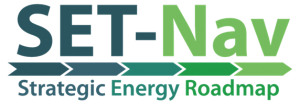


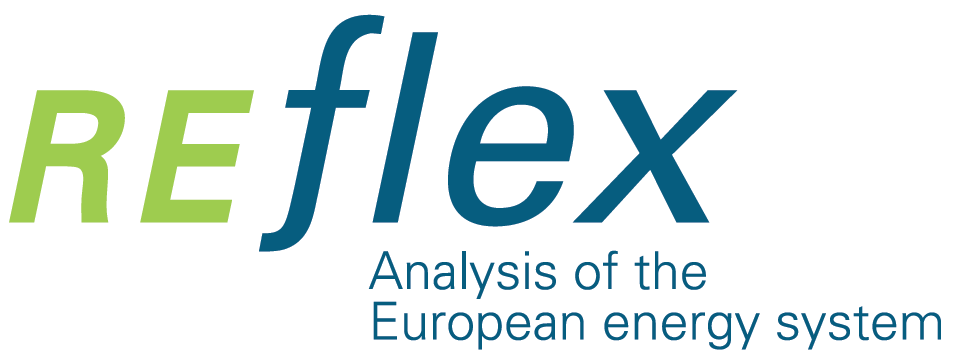
________________________________
[1][1] All four projects (SET-NAV, MEDEAS, REEEM, REFLEX) have received funding from the European Union’s Horizon 2020 research and innovation programme within the call LCE-21-2015 – Modelling and analysing the energy system, its transformation and impacts.
-
EXPERT WORKSHOP
8th November 2017
Karlsruhe
REFLEX – Expert Workshop Experience Curves
The Expert Workshop on Experience Curves was organised with several aims: 1) to disseminate and discuss preliminary findings of REFLEX WP3; 2) to discuss, with experts from the field, issues regarding the methodology and applications of experience curves; 3) to discuss, with experts from the field, the implementation of experience curves in energy models and 4) to present proposed methods to apply experience curves for (ex-ante) environmental impact assessment and 5) to gauge interest and involve experts for contributing to the publication of a book on experience curves (Deliverable D3.3 of the REFLEX project). The workshop was organized on November 8th, 2017 from 09:00 – 16:20 and was hosted by KIT-ITAS in Karlsruhe, Germany.
The workshop consisted of three parts: a plenary session before lunch (09:00-12:30) and parallel discussion sessions after lunch (13:30-16:00) and a wrap up presentations where key findings from the discussion sessions were presented (16:00-16:20). Final attendance of the workshop was 34 persons, of which 20 participants from external organisations.
The plenary session started with a presentation by Dominik Möst (TU Dresden) welcoming the participants and introducing the REFLEX project’s organization and overall goals. Afterwards, Martin Junginger (Utrecht University) gave an overview of the aims and preliminary findings of REFLEX WP3.
After these introductory presentations, six presentations were given by a mix of external and internal speakers. Oliver Schmidt (Imperial College London) presented his work on experience curves for electricity storage technologies. Ulrich Reiter (TEP Energy GmbH) presented the work of TEP Energy on experience curves and technological learning for demand side management (DSM) and other tertiary sector technologies. Uwe Remme (IEA) presented an overview of the work of IEA’s ETP group on energy modelling and experience curves. Stephanie Heitel (Fraunhofer ISI) presented a case study of applying experience curves in the transport model ASTRA. Atse Louwen (UU) presented his work on applying experience curves for environmental impact assessment of PV systems. Finally, Clas-Otto Wene (Chalmers University) presented his work on “Quantum Modelling of the Learning Curve”.
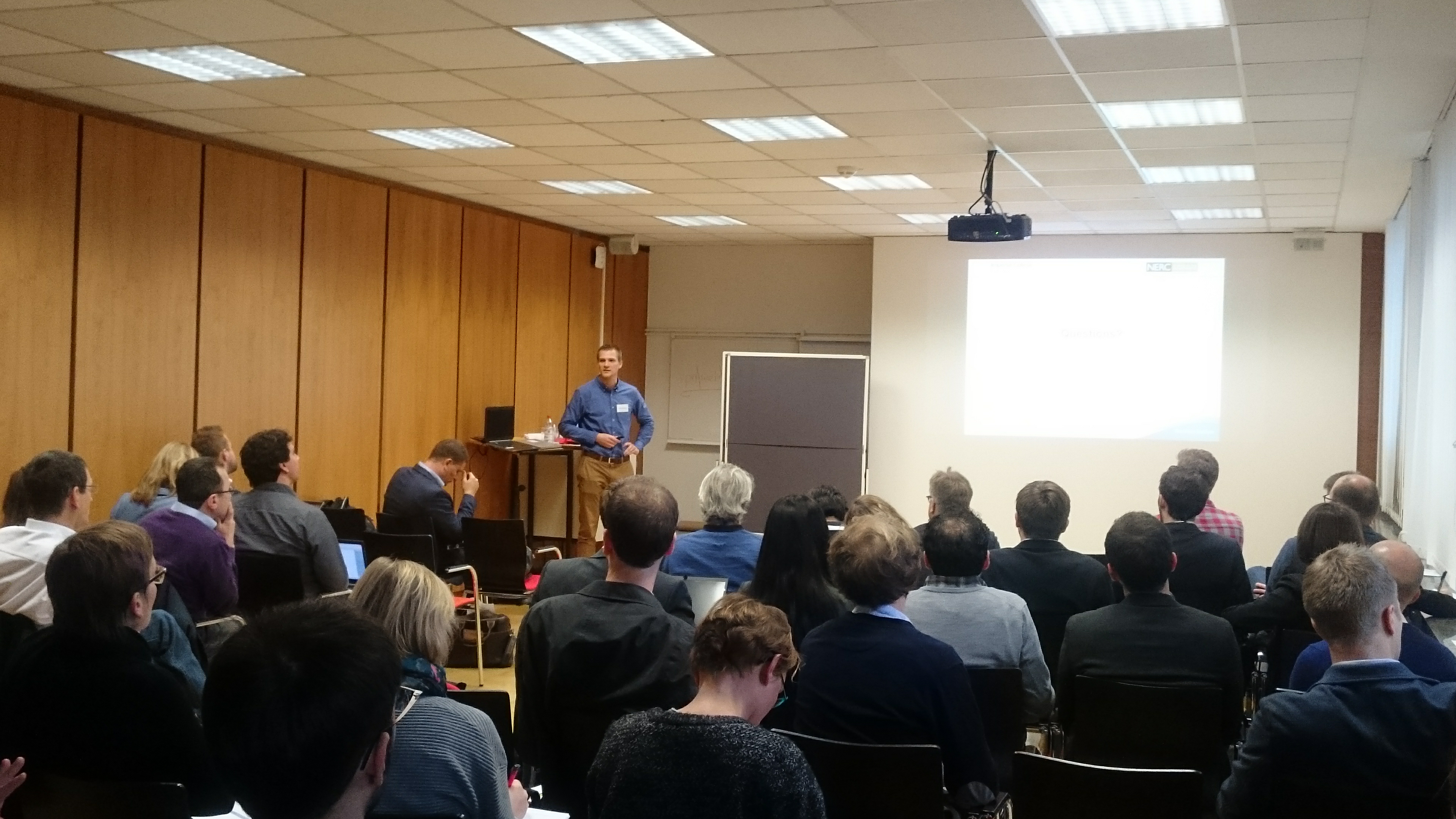
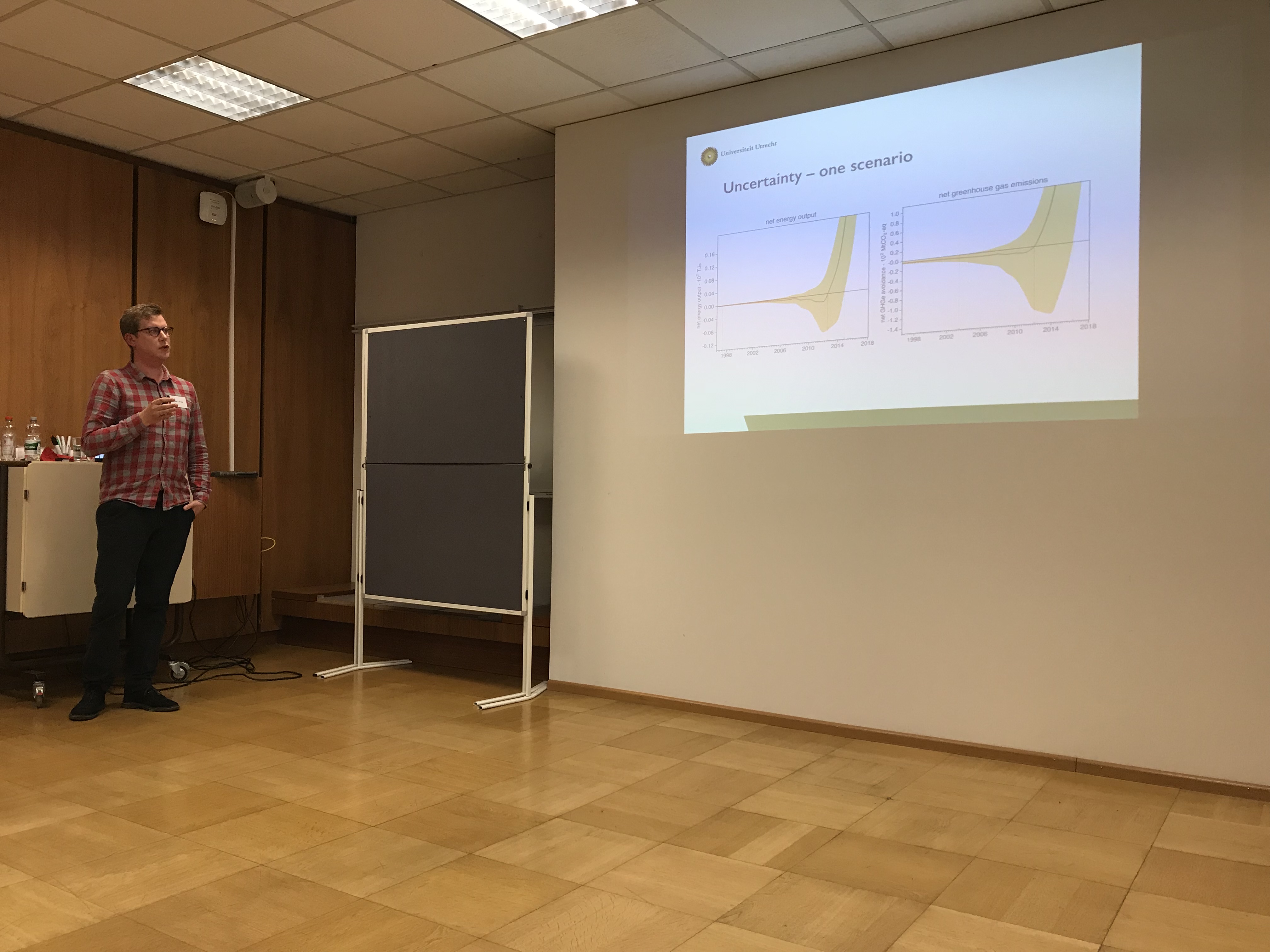
After the lunch break, three parallel discussion sessions focused on 1) the methodology and application of experience curves, 2) the implementation of experience curves in energy models, and 3) the application of experience curves for environmental impact assessment. In the first session, Noah Kittner (UC Berkeley) presented his work on two-Factor Experience curves for energy storage technologies, and Thomas Martinsen (NMBU) presented on the exchange between markets, spill-over and radical innovations and technological learning and experience curves. In the second parallel session, Steffi Schreiber (TU Dresden), Tobias Fleiter (Fraunhofer ISI), Katrin Seddig (KIT-IIP), and Christoph Fraunholz (KIT-IIP) all presented cases studies and experiences of implementing experience curves in energy models, respectively ELTRAMOD (electricity supply), FORECAST (buildings and industry), TE3 (transport) and PowerACE (electricity market). In the final parallel discussion session, Atse Louwen (UU) and Lei Xu and Mary Fuss (KIT-ITAS) gave presentations about ex-ante environmental impact assessment, respectively by using experience curves and updating of Lifecycle Inventories. In each of the parallel sessions, presentations were followed (and alternated) by open discussions with the participants.

Finally, the workshop concluded with a wrap-up session, where key findings and discussion points of the parallel discussion sessions were summarised and presented to all workshop participants, before closing of the workshop.
Plenary Presentations
REFLEX_project_Karlsruhe_plenary_WeneREFLEX_project_Karlsruhe_plenary_Schmidt
REFLEX_project_Karlsruhe_plenary_Remme
REFLEX_project_Karlsruhe_plenary_Reiter
REFLEX_project_Karlsruhe_plenary_Möst
REFLEX_project_Karlsruhe_plenary_Louwen
REFLEX_project_Karlsruhe_plenary_Junginger
REFLEX_project_Karlsruhe_plenary_Heitel
Parallel Presentations
REFLEX_project_Karlsruhe_parallel1_MartinsenREFLEX_project_Karlsruhe_parallel1_Louwen
REFLEX_project_Karlsruhe_parallel1_Lei
REFLEX_project_Karlsruhe_parallel1_Kittner
REFLEX_project_Karlsruhe_parallel1_Junginger
REFLEX_project_Karlsruhe_parallel1
REFLEX_project_Karlsruhe_parallel2_all_presentations
Final PresentationsREFLEX_project_Karlsruhe_plenary_final_Junginger
-
EXPERT WORKSHOPin the framework of the SETAC Europe conference
9th May 2017
Brussels
Social and environmental LCA of energy scenarios for the European Union
The workshop was organized on 9th May 2017 as a satellite event at the SETAC annual conference in Brussels. It was carried out as a stakeholder consultation exercise in the development of LCA-based environmental and social assessment for the future energy systems for the EU considered in the REFLEX project. The aim of the workshop was to consult LCA experts and policy makers on a proposed framework methodology for the social and environmental life cycle assessment of future energy systems scenarios.
A total of 20 external stakeholders attended the event, covering researchers, practitioners and policy makers, thereby gathering practitioners and academics from all over Europe as well as North America and Africa all of whom have a shared interest in the topic.
Program of the workshop
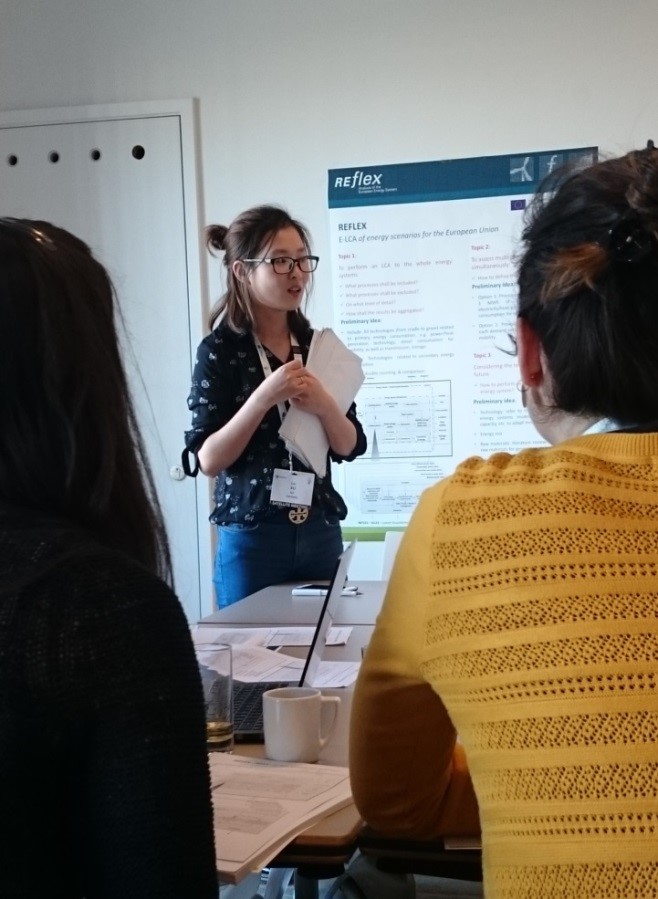
The workshop started with a presentation by Nils Brown (KTH Royal Institute of Technology) covering the aim of the REFLEX project, and specifically the aims of Work Package 6. After this attendees were divided into 3 parallel breakout discussion groups. Two groups focussed on environmental LCA-related issues in the proposed framework and led by Lei Xu and Maryegli Fuss respectively, both KIT Karsruhe Institute of Technology. One other group focussed on social LCA-related issues in the proposed framework, led by Elisabeth Ekener, KTH. These parallel sessions lasted 30 minutes each. After this participants were reorganised into two further parallel discussion groups, both focussing on the integration of social and environmental assessment in the proposed framework. The last 20 minutes consisted of a plenary discussion, led by Nils Brown, on the main issues arising in the breakout groups.
Outcomes
From an environmental LCA perspective there was much interest in how technologies under development could be considered in from a future LCA perspective (specifically small scale batteries for use in cars or in homes). The need to differentiate between different kinds of biomass in the assessment and the possible consideration of rebound effects were also brought up. Other topics raised from an environmental perspective were the way of specifying a functional unit for the system, and the notion that novel materials could affect technology functionality. From the perspective of social LCA, discussions centred around the use of existing support tools for social LCA, such as the social hotspots database and the PSILCA database. From a top-down perspective it was proposed that social aspects used for the assessment also be explicitly related to an external sustainability framework, for example the UN sustainable development goals.
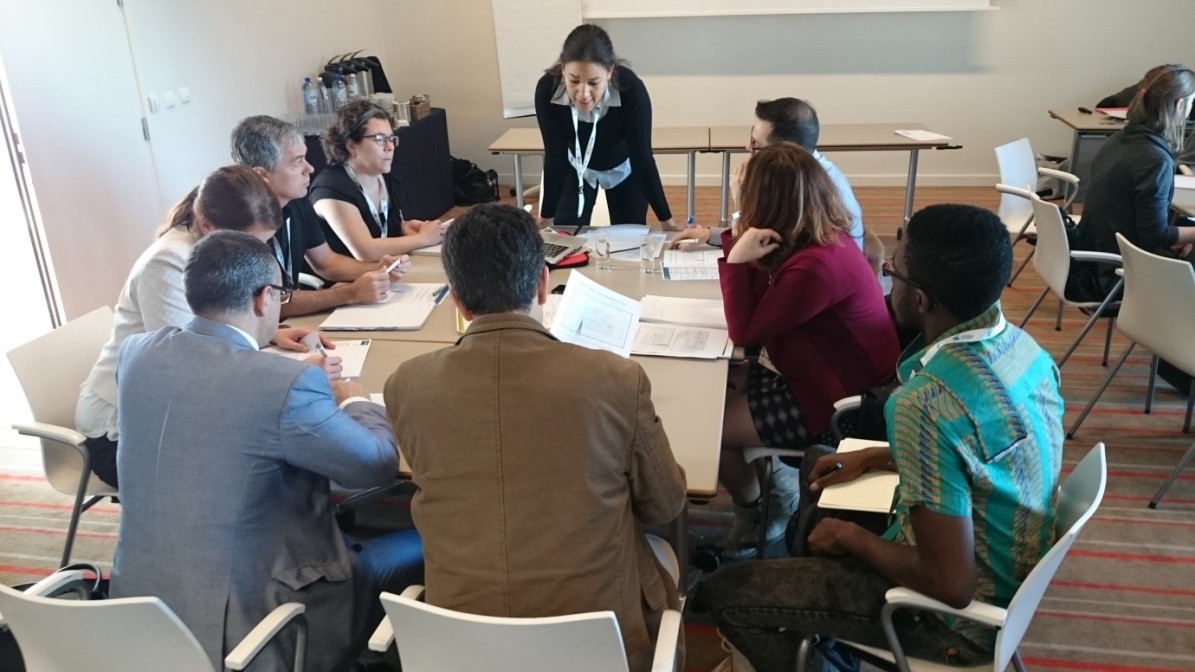
The topic of integrating social and environmental assessments was avidly discussed. One notable issue raised in this discussion was how impact categories should be considered from each perspective so as to be complementary (midpoint or endpoint). Another issue was how results should be presented and it was proposed that aggregated, single-score results should be presented alongside disaggregated results. Some attendees argued that multi-criteria decision analysis should not be used as it attempts to make parallels between fundamentally incommensurate assessment outcomes. Others suggested that it is necessary to provide some transparency to otherwise implicit weightings between different assessment outcomes.
Downloads
Contact
Nils Brown nils.brown[at]abe[dot]kth[dot]se
Elisabeth Ekener, elisabeth.ekener[at]abe[dot]kth[dot]se
KTH Royal Institute of Technology
Dept. of Sustainable development, environmental science and technology
Stockholm Sweden

